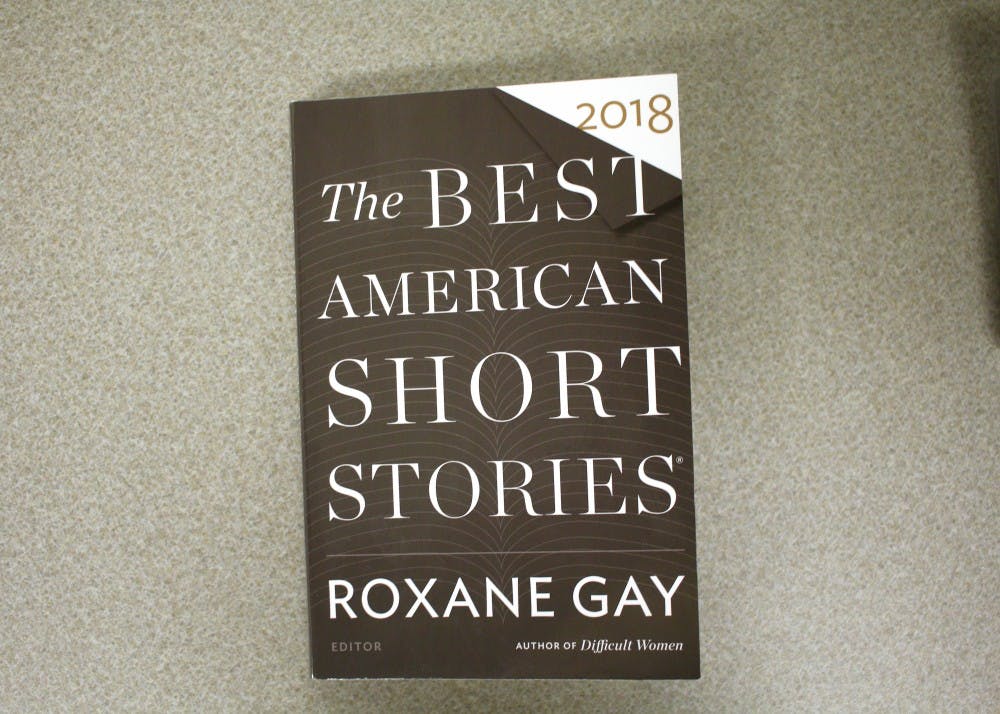“The Best American Short Stories 2018,” edited by author Roxane Gay, is a collection of short stories curated with the current cultural climate in mind. The 20 piece collection is an exploration into what it means to read political fiction and the different forms it can take.
The marvel of these stories is to come into them expecting political writing and to be astounded by how much fun they are. Each author writes away from any heavy-handed political lesson and chooses to focus on character and story. The result is a collection of extremely compelling narratives with nuanced people and challenges.
For example, Ron Rash’s “The Baptism” is a Western-era story dealing with the question of forgiveness in the face of spousal abuse. “Items Awaiting Protective Enclosure” by Téa Obreht follows a poacher who falls in love with her colleague in a dystopian future where meat consumption and hunting are illegal.
Maria Anderson opens the collection with “Cougar,” a bold, stunning tale of a son in remote Wyoming dealing with the sudden disappearance of his father, while indifferently trying to figure out the haze of his future. The prose is lonely and tense, filled with a vague notion of things going wrong and no desire to fix them. The story is as much a horror story as it is an expression of grief.
As interested as Gay is in ennobling marginalized writers and stories, she’s also interested in understanding in characters portraying the ugliest of modern cultural epidemics. She finds characters who embody masculine rage, racism, sexism and more, delving into their stories to shed light on and humanize them.
“Boys Go to Jupiter” by Danielle Evans is an impressively empathetic narrative of how minor acts of human misjudgment and naivete can cause pain. After the protagonist willingly takes a photo in a Confederate flag bikini, she must come to realize the implications of the symbol, as well as her own role in its perpetuation.
The story’s power lies in its desire to present a human being with flaws rather than solely villainize her actions. The prose is surprising and strong, and the protagonist’s arc, and why she makes the brash, offensive decisions she makes, are unflinchingly human and understandable.
Other stories follow a similar route, such as “The Brothers Brujo” by Matthew Lyons, a macabre look of two siblings trying to survive under their abusive father. Underpinning the story are the terrible satisfactions of power and how anger can ignite them.
Again, heavy-handed, didactic storytelling is not present anywhere in this collection. Almost every story offers enjoyable characters and compelling writing. Many pieces are tender and humorous.
“What Got Into Us” by Jacob Guajardo tells the story of two 14 year-old boys in innocent love and how they struggle with growing up and diverging from each other. Far in the future, one of the boys reestablishes contact with the other while going through rehabilitation for a heroin addiction:
“He will call saying that one of the steps is making amends and a week later we will end up fucking against the walls of the apartment I share with my boyfriend. He will break off in me like shells.”
Not every story’s thematic content struck me as powerful, though the writing was always thrilling. Dina Nayeri renders the bohemian father and white-collar daughter in “A Big True” with unreserved tenderness and warmth, despite their difficult relationship.
Gay’s selection of stories is extremely disciplined, mature and entertaining. Those looking for scintillating stories can look here, as well as those seeking fiction with contemporary social critique.




